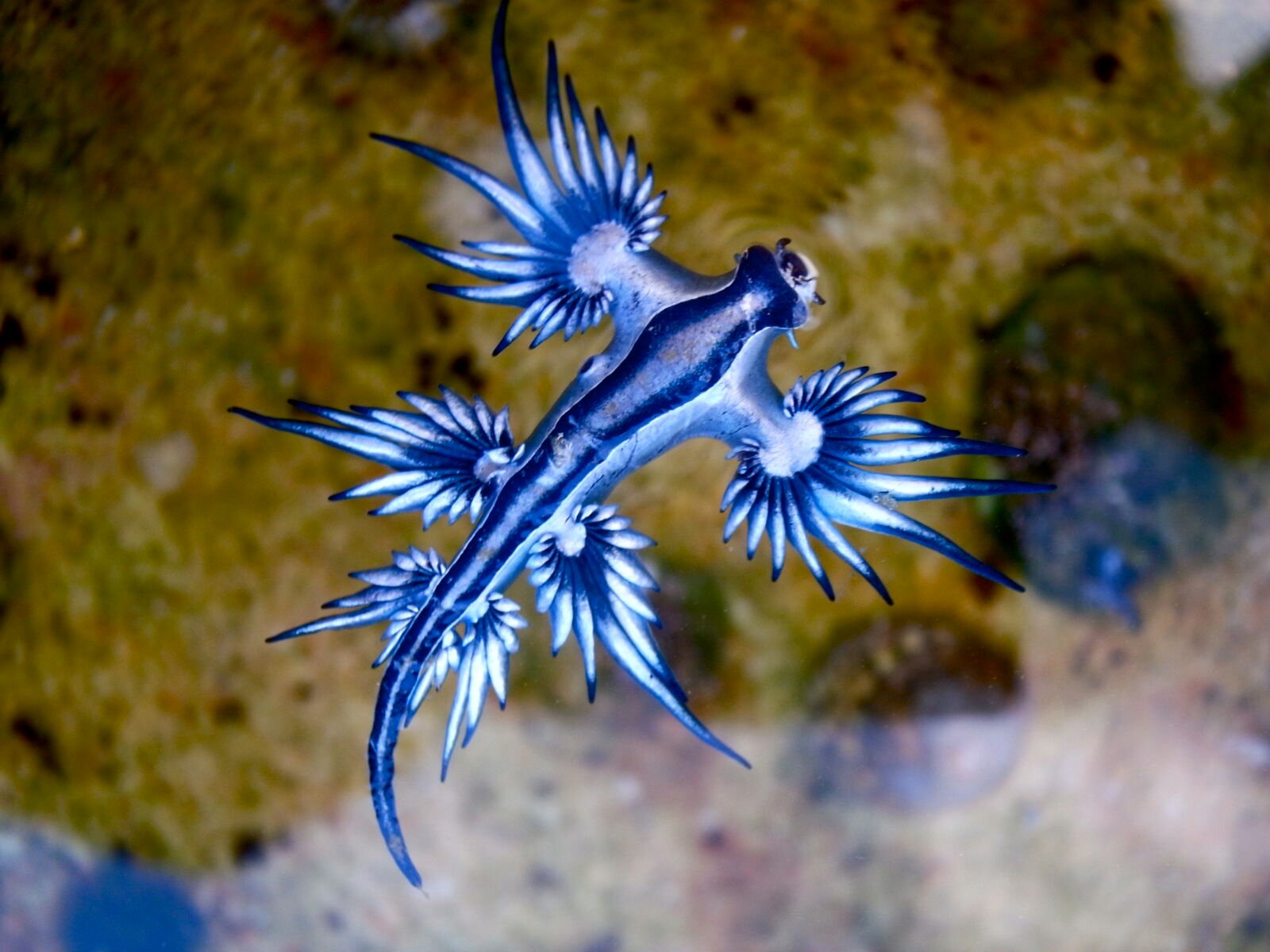Beach warning: Venomous blue dragon sea slug spotted in Phuket

A marine scientist issued a warning to bathers to be aware of a venomous blue dragon sea slug that washed up on Karon Beach in Phuket this week due to the recent strong winds and sea weave.
The Monsoongabage Thailand Facebook page shared pictures and videos of the blue dragon sea slug today and urged a marine scientist and lecturer from the Kasetsart University, Thon Thamromgnawasawat, to provide information and essential cautions to the public.
Thon said…
“The sea slug in question belongs to the species Glaucus atlanticus. They live in the mid-levels of the seawater and are often found far out at sea. It is a rarity to encounter them along the coastline. The powerful surges of waves and wind are likely propelling them towards the shore. They eat jellyfish, a Portuguese Man o’War, and absorb jellyfish’s sting cells in their own bodies, resulting in their violent venom.”
Thon provided suggestions for those who accidentally touched the sea creature.
“We rarely saw the blue dragons in Thailand. If you found them, do not touch them. If you accidentally touch them, clean the affected body parts with vinegar.”
According to a report on ThaiRath, the blue dragon sea slug is prominently found in the temperate waters of Australia, the coastal regions of South Africa, and various parts of Europe. It looks like a dragon with six vivid blue wings. These creatures typically measure about 1 to 1.5 inches in size. It has a fierce personality and immediately attacks all the intruders.
The venom has a direct effect on the nervous system, cardiac function, and dermal cells. Victims of its sting report sensations of intense heat and pain around the wound site, accompanied by dizziness and headaches. The venom can be fatal as well.
Follow The Thaiger’s latest stories on our new Facebook page: CLICK HERE
Latest Thailand News
Follow The Thaiger on Google News:


























